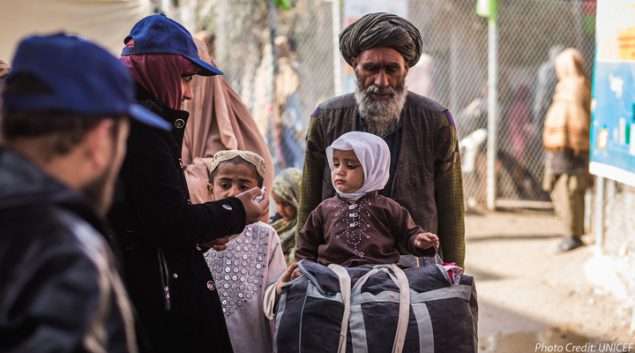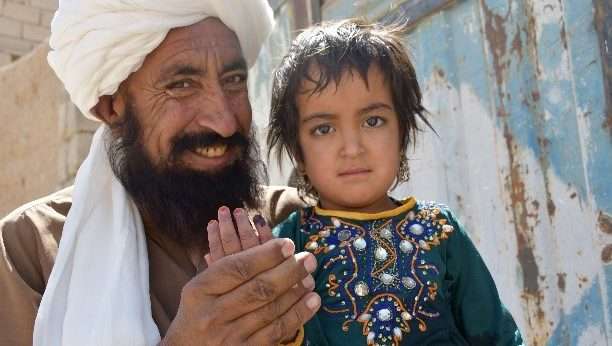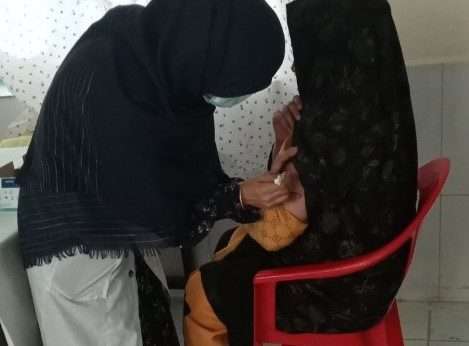World Polio Day

KABUL, Afghanistan, 24 October 2019 – As the world commemorates the World Polio Day, the Ministry of Public Health, UNICEF, WHO and partners are taking a moment to recognize the tremendous efforts made by polio eradication frontline workers who continue to work under difficult and challenging conditions to reach every child with two drops of polio vaccine.
“Today, as we mark the World Polio Day, let’s remember the number of children, whose lives have been ravaged by the polio, and many who live in an insecure and inaccessible areas and continue to miss essential vaccinations,” said Dr. Ahmad Jawad Osmani the Acting Minister of Public Health. “The Covid-19 situation in the country disrupted health services including polio campaigns, hence the number of polio cases increased. We must scale efforts our efforts to reach every child. And I’m calling upon all parents and guardians to vaccinate the children during the upcoming campaign,” Dr. Osmani added.
Since the beginning of 2018, the polio programme in Afghanistan has provided close to 114 million doses of oral polio vaccine to children through campaigns. This has been made possible with incredible work of frontline workers. Nevertheless, a lot of work needs to be done to interrupt the circulation of poliovirus in the hotspot provinces of Kandahar, Helmand, Uruzgan Kunar and Nangahar.
To date, there are 53 children who have permanently been disabled by polio. 35 of these cases have been reported in the South region, 8 from West, 6 from Southeast, 2 from East, and one from each region in north and northeast regions
“The road to polio eradication is difficult but achieving the goal is not impossible,” said Peter Jan Graaff, Country Representative for WHO Afghanistan. “Widened immunity gaps, resulting from disruptions to vaccination campaigns because of COVID-19 and insecurity, are a critical challenge but also represent an opportunity for all parties to renew commitment and solidarity to secure a polio free Afghanistan. The polio programme remains confident in its time-tested ability to adapt and innovate to end polio and continue support in building stronger health systems through the delivery of essential health services, but we need everyone’s support to cross the finish line.”
Vaccinating every child through multiple doses of the polio vaccine is the only way to stop the polioviruses currently in circulation. It is a collective responsibility. Donors have committed the necessary funds; the government and partners are working together to ensure vaccine availability; polio eradication workers are going beyond in challenging environments to reach children with vaccines. Now, it is the responsibility of parents and communities to ensure their children are protected against polio.
“When a child is paralyzed, it is a life ruined, it’s a burden to the family, community and indeed to everyone,” said Mustapha Ben Messaoud.” UNICEF Afghanistan Acting Deputy Representative. “This should not happen; every child deserves to be protected against polio. Despite the challenges, we need to adapt to strategies that accelerate the eradication of polio and do to our part and complete the job, The Government, WHO, UNICEF and health partners are calling for a combined effort and safe access to vaccinate all children in difficult and conflict prone areas. Every Afghan has role to play in ending polio in Afghanistan.


